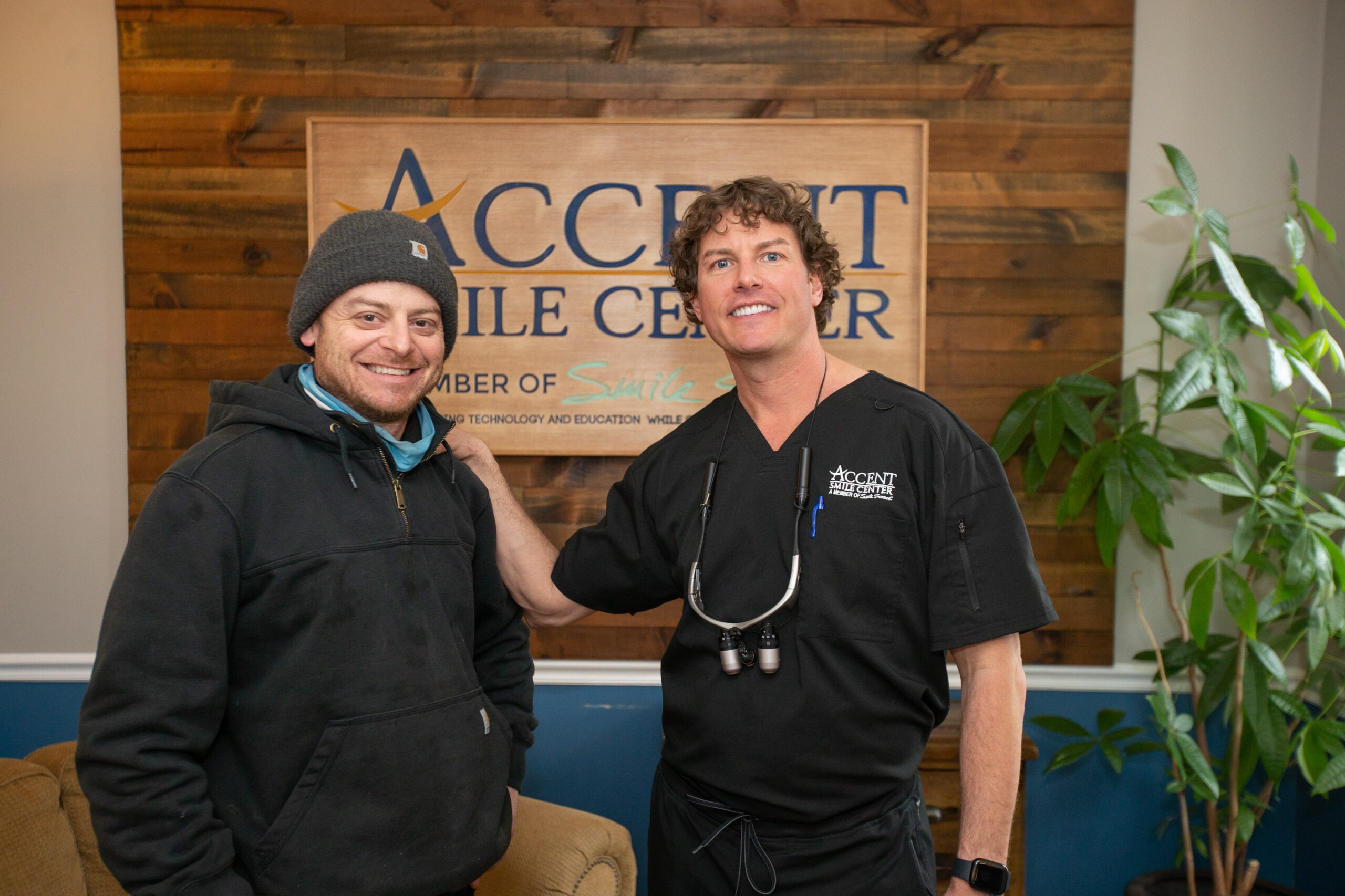Generally speaking, people want to avoid surgery of any kind. When it comes to surgical extractions in dentistry, it’s important to work with a team of experienced professionals to ensure the procedure itself and the recovery go as smoothly as possible. And our experts at Accent Smile Center promise you just that and can help you answer the question: “Do I need a surgical extraction?”
Simple vs. Surgical
There are two types of extractions in dentistry. A simple extraction tends to be a little bit more straightforward since they are usually done on teeth that are visible in the mouth and can be grasped with dental instruments.
A surgical extraction is more complex and usually involves an internal procedure, i.e., if a tooth isn’t easily accessible. These extractions are performed by dentists like our own Dr. Gatgens or Dr. Densmore, as well as oral surgeons.
Wisdom Teeth
This is probably the most common means of surgical extraction. Wisdom teeth are also called “third molars,” and we recommend getting them removed between the ages of 17 and 20. It’s especially important to have this surgery if your teeth are impacted (trapped in the gum tissue or jawbone) because this can increase the risk of complications.
Here are some of the complications in question:
- Pain due to impaction can be chronic or acute—but either way, it can reach a point where it affects your quality of life.
- Infection and gum disease can be an issue for wisdom teeth since they cannot be easily cleaned and, therefore, more susceptible to bacteria.
- Cysts and tumors can develop around wisdom teeth, damaging the jawbone and surrounding teeth; extraction is a preventative measure against these issues.
Since so many people get their wisdom teeth removed, you can trust us when we say it’s a process we’re familiar with and nothing to be afraid of.

Other Reasons for Surgical Extraction
- Severe tooth pain that doesn’t respond to other dental treatments (fillings or root canals) might have to be extracted.
- Extensive decay that can no longer be restored may also need to be extracted.
- Advanced gum disease leads to tooth mobility and bone loss, and an extraction may be necessary to prevent further complications.
- Orthodontic treatment may occasionally call for an extraction to ensure a proper fit for alignment.
- Broken or fractured teeth below the gumline can need this treatment, especially when the remaining structure cannot support further restoration.
- Infections or abscesses can require this manner of surgery to eliminate the source of the condition.
What to Expect
In case you end up needing a surgical extraction, we want to provide you with some of the general steps we take in this manner of procedure. Of course, it will vary depending on the individual treatment, but this is a good overview.
- Evaluation/Consultation: One of our dentists will determine if the procedure is needed. We will consider your medical history, as well as x-rays and other options like anesthesia.
- Anesthesia: There are usually a few choices here: Local anesthesia numbs the area of the extraction, and you’ll remain completely aware of the procedure. The alternative is IV Sedation or Nitrous Oxide, which will leave you drowsy but aware. Again, this will be decided between you and your doctor ahead of time.
- Incision: We might make a small incision in the gum tissue near the tooth to access it and its root structure.
- Tooth Extraction: Using specialized instruments, your dentist will carefully loosen the tooth from its socket in the bone. It can be removed in one piece or divided into sections for easier extraction. We can also preserve the ridge using a bone graft to reduce bone loss.
- Stitches: In some cases, like with wisdom teeth, we’ll use stitches that dissolve on their own over time.
- Post-Op Care: Our team will provide you with thorough instructions for care after the procedure, usually regarding oral hygiene, dietary restrictions, and the use of cold compresses to reduce swelling.
- Recovery: Over the next few days, you’ll probably use pain relievers and anti-inflammatory medication to manage swelling and pain and might encounter mild bleeding.
At this point, we can arrange for a follow-up appointment to monitor healing progress, assess remaining recovery time, and remove stitches that aren’t dissolvable. The chances of complications are present in any surgery—be sure to contact us immediately if you experience any concerning symptoms of infection or nerve damage. But for the most part, this is a safe and routine manner of procedure, tailored carefully to every patient by the Accent Smile Center team.
Our Team Is Proud to Serve You!
Even if you do require a surgical extraction, you can count on us to take the best possible care of you and take care of any issue you might be facing. If you believe any of this information may apply to you, feel free to make an appointment with us at our Dickson office.
